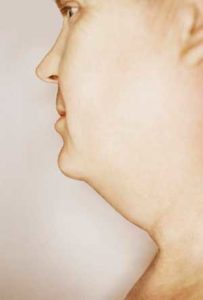 The decision to get a surgery or procedure done is a big one for both financial and aesthetic reasons. Dr. Michelle Yagoda strives to offer the best to patients regarding both financing and treatments — which includes taking into consideration payment options.
The decision to get a surgery or procedure done is a big one for both financial and aesthetic reasons. Dr. Michelle Yagoda strives to offer the best to patients regarding both financing and treatments — which includes taking into consideration payment options.
Although cosmetic surgery lines of credit from companies like Care Credit (GE), Chase Health Advantage (JP Morgan/Chase) and Citi Health Card (Citibank) seem enticing at first glance — as they offer patients immediate access to elective healthcare procedures — patients should fully understand the terms and conditions before signing on. Governor Cuomo investigated the “predatory behavior” of healthcare lenders back in 2010. These healthcare finance companies charge extremely high interest rates — especially if the consumer opts and qualifies for an initial interest free loan period. Specifically, after the interest free period (ranging from 6-24 months), finance charges are in the range of 15-30%, and, if a payment is missed or the balance isn’t fully paid during the promotional period, then finance charges can be assessed retroactively on the entire interest free period as well. As a result, many patients struggle with loan payments, which oftentimes leads to a devastated credit rating.
While some surgeons are enticed by the promise of an increased volume of patients who can afford services, doctors need to understand that the assessed processing fees are significantly higher than those associated with traditional credit cards (as much as 15% higher). And, for those patients who are not eligible for interest free loans, the physician will be assessed a processing fee of more than double that of a traditional credit card.
So, who is really benefiting from healthcare financing? The patient? The doctor? Upon close inspection, it becomes clear that the answer is neither: It is the lender who wins! Since Dr. Yagoda does not want her patients to struggle with loans – nor does she want to participate in a business plan built around taking advantage of people – she offers a PSA or a Patient Saving Account. This system allows patients to credit/put away money until they have amassed enough to have their surgery or procedure done. In the end, this ensures that no third-party is involved, no loans are lingering, and the patient will only have to enjoy their wonderful results!

































 The decision to get a surgery or procedure done is a big one for both financial and aesthetic reasons. Dr. Michelle Yagoda strives to offer the best to patients regarding both financing and treatments — which includes taking into consideration payment options.
The decision to get a surgery or procedure done is a big one for both financial and aesthetic reasons. Dr. Michelle Yagoda strives to offer the best to patients regarding both financing and treatments — which includes taking into consideration payment options.